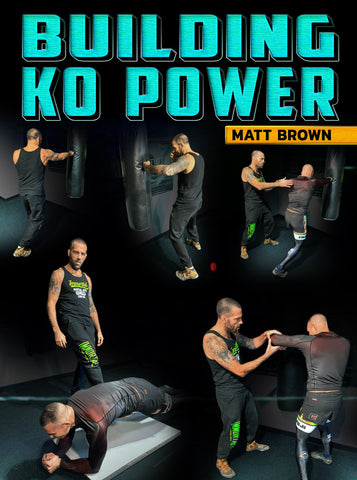Unlocking Your Potential with Solo Drills
Muay Thai, known as the "Art of Eight Limbs," is a martial art that requires precision, power, and agility. While partner training is essential for mastering techniques, solo drills play a crucial role in refining skills, improving technique, and building conditioning. In this comprehensive guide, we'll explore the world of Muay Thai solo drills, from training at home to the best exercises for enhancing your performance in the ring.
What this article covers:
- Solo Muay Thai Training
- Best Drills to Get Better at Muay Thai
- Exercises to Improve Muay Thai Performance
- Muay Thai Drills at Home
- Muay Thai Training Benefits at Home
Practicing Muay Thai drills at home serves as a foundation for anyone considering taking up the sport, as it offers a glimpse into the dynamic and challenging world of Muay Thai. Through solo drills, individuals can gauge their interest in Muay Thai, experience the intensity of training firsthand, and begin developing essential skills such as head movement, which is crucial for defensive tactics and evading opponents' strikes. Additionally, personal Muay Thai training at home allows practitioners to focus on specific areas of improvement, whether it's refining their Muay Thai jab technique, mastering Muay Thai advanced combinations, or honing their overall skills. By incorporating Muay Thai drills at home into their routine, enthusiasts can cultivate a strong foundation, enhance their understanding of the sport, and lay the groundwork for future progression in their Muay Thai journey.
Get the best striking resources available at DynamicStriking.com!
Solo Muay Thai Training
Solo training is a cornerstone of Muay Thai development, allowing practitioners to sharpen their techniques, build muscle memory, and improve conditioning outside of the gym. Whether you're a beginner looking to refine your basics or an experienced fighter aiming to enhance your skills, solo drills offer countless opportunities for growth.
Best Drills to Get Better at Muay Thai
- Shadow Boxing: Shadow boxing is a fundamental solo drill that allows practitioners to simulate sparring without a partner. Focus on proper form, footwork, and fluidity of movement while incorporating combinations and defensive maneuvers.
- Heavy Bag Work: Utilize the heavy bag to practice striking techniques with power and precision. Work on kicks, punches, elbows, and knees, emphasizing proper technique and generating force through hip rotation and weight transfer.
- Muay Thai Pad Work (With Imaginary Pads): Mimic pad work by visualizing a partner holding pads and execute combinations with speed and accuracy. This drill enhances hand-eye coordination, timing, and rhythm.
- Clinch Training (Against the Wall or Resistance Bands): Improve clinch technique and strength by practicing against a wall or using resistance bands to simulate the resistance of an opponent. Focus on control, positioning, and leverage.
- Balance and Stability Exercises (e.g., One-Legged Kicks, Swiss Ball Exercises): Enhance balance, stability, and core strength through exercises that challenge proprioception and coordination, such as one-legged kicks or stability ball drills.
Exercises to Improve Muay Thai Performance
- Plyometric Drills: Incorporate plyometric exercises like jump squats, box jumps, and lateral bounds to develop explosive power and agility necessary for Muay Thai techniques.
- Strength Training (Compound Movements, Bodyweight Exercises): Build functional strength with compound movements like squats, deadlifts, and pull-ups, as well as bodyweight exercises like push-ups and lunges to enhance overall athleticism.
- Flexibility and Mobility Training: Prioritize flexibility and mobility work to optimize range of motion and prevent injuries. Incorporate dynamic stretches, yoga, and foam rolling into your training regimen.
- Cardiovascular Conditioning: Improve endurance and stamina with high-intensity interval training (HIIT), running, cycling, or skipping rope to sustain energy levels during prolonged bouts and training sessions.
- Mental Training (Visualization, Meditation): Cultivate mental toughness and focus through visualization techniques and meditation to maintain composure under pressure and execute techniques with clarity and confidence.
Muay Thai Drills at Home
Training at home offers convenience and flexibility, allowing practitioners to maintain consistency and progress even when unable to access a gym. Set up a dedicated training space with essential equipment like a heavy bag, pads, and a mirror for shadow boxing. Follow a structured training plan incorporating solo drills, strength and conditioning exercises, and flexibility training. Utilize online resources, instructional videos, and virtual classes to supplement your training and stay motivated.
Muay Thai Training Benefits at Home
- Convenience: Train on your schedule without the constraints of gym hours or travel time, making it easier to stay consistent with your training routine.
- Privacy: Enjoy uninterrupted training sessions in the comfort of your own home, free from distractions or self-consciousness.
- Cost-Effectiveness: Save money on gym memberships and transportation costs by investing in essential equipment and utilizing online resources for guidance and instruction.
- Customization: Tailor your training program to address specific areas of improvement and focus on individual goals without competing for equipment or instruction.
- Adaptability: Adjust your training intensity, duration, and focus based on your fitness level, preferences, and available resources, allowing for a personalized and adaptable training experience.
Get the best striking resources available at DynamicStriking.com!

Solo drills are invaluable tools for Muay Thai practitioners seeking to enhance their skills, conditioning, and overall performance. By incorporating solo training into your regimen and supplementing it with strength and conditioning exercises, flexibility training, and mental preparation, you can maximize your potential and achieve success in the ring. Whether you're training at home or in the gym, consistency, dedication, and a growth mindset are key to mastering the art of Muay Thai.
Did our blog meet your needs? You might also find our other guides helpful:
- The Health Benefits of Muay Thai Training
- Muay Thai Training at Home
- Decoding Muay Thai Rankings
- The Ultimate Muay Thai Diet Guide
- The Essence of the Muay Thai Body
- A Deep Dive into Muay Thai Sparring
- Unveiling the Muay Thai Headbutt
- Unveiling the Secrets of Muay Thai Fitness
- Unveiling the Art of Muay Thai Weapons
- Decoding the Bang Muay Thai Ranking System
- Mastering Muay Thai Pad Work
- Unlocking the World of Muay Thai
- The Ultimate Guide to Top Tips and Tricks
- Mastering Southpaw Muay Thai
- Unraveling the Art of Muay Thai Takedowns










